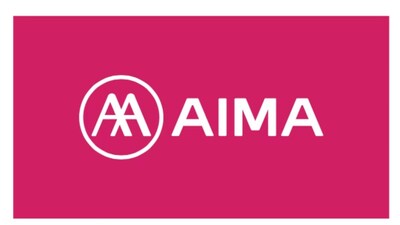Fintech PR
Rising Interest in A-shares ETFs Amid Market Sentiment Surge and Overseas Capital Influx

GUANGZHOU, China, Oct. 28, 2024 /PRNewswire/ — Recently, the National Bureau of Statistics of China announced that investment in high-tech industries continued to scale up in the first three quarters, of which the investment in high-tech manufacturing and high-tech services grew by 9.4% and 11.4% respectively. Since September 24th, a series of favorable policies, such as interest rate cuts, mortgage rate reductions, and new monetary tools have boosted China’s stock market sentiment. Interest in high-quality assets continues to rise, with broad-based ETFs gaining traction as an attractive investment option. It’s also observed that foreign capital is accelerating its inflow into Chinese assets.
EPFR data shows that US$57.6 billion flowed into A-shares between September 23rd and October 20th, making up more than 90% of total flows into emerging markets. As of October 24th, Bloomberg data shows that China-focused ETFs occupied five of the top 10 global ETF inflows, totaling US$19.2 billion for the past month. Global investors particularly favored technology industries, which accounted for a significant portion of these inflows.
Notably, E Fund ChiNext ETF (Code: 159915) and E Fund STAR 50 ETF (Code: 588080) provided by E Fund Management (“E Fund”), the largest mutual fund manager in China, are attracting attention. These ETFs focus on high-growth technology and innovation-driven industries, aligning with the increasing investor interest in China’s tech sectors. To be more specific, while the ChiNext index prioritizes sectors such as new energy and healthcare, the STAR 50 Index leans more towards semiconductor sector.
In addition, E Fund continues to innovate, expanding its ETF product line to meet growing market demand for diverse, sector-specific investment opportunities, including E Fund AI ETF (Code: 159819) and E Fund CSI Cloud Computing & Big Data ETF (Code:516510), which are available via ETF Connect to empower offshore investors.
About E Fund
Established in 2001, E Fund Management Co., Ltd. (“E Fund”) is a leading comprehensive mutual fund manager in China with over RMB 3.5 trillion (USD 505 billion) under management.* It offers investment solutions to onshore and offshore clients, helping clients achieve long-term sustainable investment performances. E Fund’s clients include both individuals and institutions, ranging from central banks, sovereign wealth funds, social security funds, pension funds, insurance and reinsurance companies, to corporates and banks. Long-term oriented, it has been focusing on the investment management business since inception and believes in the power of in-depth research and time in investing. It is a pioneer and leading practitioner in responsible investments in China and is widely recognized as one of the most trusted and outstanding Chinese asset managers.
Source: E Fund. AuM is preliminary and includes subsidiaries. Data as of Sep 30, 2024. FX rate is sourced from PBoC.
Logo – https://mma.prnewswire.com/media/2085383/_Logo.jpg
![]() View original content:https://www.prnewswire.co.uk/news-releases/rising-interest-in-a-shares-etfs-amid-market-sentiment-surge-and-overseas-capital-influx-302288144.html
View original content:https://www.prnewswire.co.uk/news-releases/rising-interest-in-a-shares-etfs-amid-market-sentiment-surge-and-overseas-capital-influx-302288144.html

Fintech PR
China’s AIMA brand electric motorbike is now in Bangladesh

DHAKA, Bangladesh, Nov. 23, 2024 /PRNewswire/ — With the popularity of electric vehicles in Bangladesh, the globally renowned AIMA brand has also arrived in Bangladesh. The esteemed DX Group has brought the AIMA F-626 to customers. This environmentally friendly battery-operated electric motorbike has already been approved by the Bangladesh Road Transport Authority (BRTA) now.
In light of the increasing popularity of electric motorcycles in the country, the internationally-leading brand AIMA has entered the market. By the end of 2023, AIMA electric two-wheelers had established a presence in over 50 countries worldwide, with 11 global production bases, including overseas factories in Indonesia and Vietnam. In 2022, AIMA collaborated with Rob Janoff, the designer of the Apple logo, to refresh the brand’s VI system with a youthful and fashionable image. In 2023, AIMA teamed up with PANTONE, the global authority in color expertise, to create the trending color of the year. As an industry leader, AIMA spearheads the electric two-wheeler sector and showcases the prowess of a leading electric two-wheeler brand on a global scale. As of March 31, 2024, AIMA’s total electric two-wheeler sales had reached 80 million units, earning certification from Frost & Sullivan, a globally recognized business growth consulting firm, as the “Global Leading Electric Two-wheeler Brand”.
Over the years, AIMA has always been a product trendsetter in the electric two-wheeler sector. As of March 31, 2024, the total sales volume of AIMA electric two-wheelers reached 80 million, and Frost & Sullivan, a world-renowned market consulting company, awarded AIMA with the market status certification of the “Global Leading Electric Two-wheeler Brand (by Sales)”.
AIMA adhere to the customer-centered product philosophy and technologies that support long-term innovation and breakthroughs. We believe that the efficiency and modern technology of the AIMA F-626 will present an excellent alternative means of communication for our customers.


Photo – https://mma.prnewswire.com/media/2557788/image.jpg
Photo – https://mma.prnewswire.com/media/2565550/Image2.jpg
Logo – https://mma.prnewswire.com/media/2449955/5026987/AIMA_Technology_Logo.jpg
![]() View original content:https://www.prnewswire.co.uk/news-releases/chinas-aima-brand-electric-motorbike-is-now-in-bangladesh-302314773.html
View original content:https://www.prnewswire.co.uk/news-releases/chinas-aima-brand-electric-motorbike-is-now-in-bangladesh-302314773.html

Fintech PR
China Telecom Gulf Officially Launches in Saudi Arabia for Business

HONG KONG, Nov. 23, 2024 /PRNewswire/ — On November 21, China Telecom Gulf was officially launched in Riyadh. This milestone marks a significant step in China Telecom’s efforts to provide deep services under the “Belt and Road Initiative” and to promote the building of a “China-Arab Community with a Shared Future.” It signifies another solid advancement on China Telecom’s path toward internationalization. Mr. Liu Guiqing, Executive Director and EVP of China Telecom Corporation, delivered an opening speech, along with Mr. Fawaz, Representative of Contact Office of Chinese Companies in the KSA, Deputy General Manager of Industrial and Commercial Bank of China Riyadh Branch. Over 100 guests and leaders from the Economic and Commercial Office of Embassy of the PRC of the KSA, Saudi Telecom Company (STC), Bank of China, Huawei, and others attended to witness this momentous occasion.
In his address, Mr. Liu Guiqing emphasized China Telecom’s commitment to openness, cooperation, and mutual benefit. He expressed the company’s willingness to share its experiences in cloud-network integration, cloud transformation, intelligent operations, and technological innovation. China Telecom aims to work closely with various levels of Saudi governments, enterprises, and partners to actively participate in the development of local digital infrastructure, drive the rapid advancement of next-generation information technologies, and establish a robust bridge for cooperation between China and Saudi Arabia in the field of information technology. Leveraging its extensive resources and global operational capabilities, China Telecom plans to bring its strengths in 5G, cloud computing, artificial intelligence, and other fields to provide innovative, high-quality communication products and services to Saudi enterprises, institutions, and consumers.
Mr. Fawaz extended his warm congratulations on the opening of China Telecom Gulf. He highlighted that as a leading global provider of communication services, China Telecom possesses abundant cloud-network resources and mature international service capabilities. The establishment of China Telecom Gulf is a significant step toward supporting the digital transformation of businesses in the region. He expressed confidence that through joint efforts, the company will seize opportunities in the digital era and contribute to Saudi Arabia’s socio-economic development and practical cooperation between China and Saudi Arabia in various fields.
China Telecom showcased its global resources, business capabilities, and its investments and partnerships in the Middle East and Africa. Key services introduced included eSurfing Cloud, computing power solutions, quantum technology, and customized 5G networks. Currently, China Telecom operates branches in 42 countries and regions worldwide, owns 53 international submarine cables, and manages 27 self-operated Internet Data Centers (IDCs). Its cloud-network integrated infrastructure and customer-centric digital service systems provide coverage across the globe.
During the event, China Telecom Gulf signed strategic cooperation agreements with Saudi Telecom Company (STC), Huawei Saudi Arabia, and Baud Telecom Company. The parties committed to deep collaboration, leveraging their respective strengths to provide optimized and convenient digital experiences to Saudi customers.
The establishment of China Telecom’s presence in Saudi Arabia marks a major milestone in the company’s entry into the Middle Eastern communications market, representing a key development in its global strategy. Moving forward, China Telecom Gulf will leverage China Telecom’s robust digital infrastructure and resource integration capabilities. We will collaborate closely with local Saudi enterprises, Chinese businesses expanding internationally, and global companies to strengthen cooperation and enhance exchanges. The company aims to contribute to the growth of Sino-Saudi and Middle Eastern industrial cooperation, continuously offering more smart solutions for the development of the Middle East’s digital economy, while striving to become a world-class provider of digital and intelligent technology services.
Photo – https://mma.prnewswire.com/media/2566044/image_5024765_40051959.jpg
![]() View original content:https://www.prnewswire.co.uk/news-releases/china-telecom-gulf-officially-launches-in-saudi-arabia-for-business-302314765.html
View original content:https://www.prnewswire.co.uk/news-releases/china-telecom-gulf-officially-launches-in-saudi-arabia-for-business-302314765.html

Fintech PR
Redefining Financial Frontiers: Nucleus Software Celebrates 30 Years with Synapse 2024 in Singapore

SINGAPORE, Nov. 23, 2024 /PRNewswire/ — The thriving India–Singapore partnership in banking and technology reached a new milestone as Nucleus Software celebrated 30 years of transformative innovation at Synapse 2024, held in Singapore. The event underscored the company’s role in redefining financial services across Southeast Asia (SEA) and the globe, bringing together leaders in finance and technology to explore a shared vision for the future of banking.
Synapse 2024 celebrated 30 years of Nucleus Software’s leadership in driving transformative change across Singapore and Southeast Asia’s financial ecosystem. The event also shone a spotlight on the Global Finance & Technology Network (GFTN), an initiative supported by the Monetary Authority of Singapore (MAS) to champion responsible technology adoption. The event highlighted the deepening synergies between India and Singapore, driven by their shared commitment to innovation, cross-border collaboration, and financial inclusion. As the financial services sector undergoes rapid evolution with advancements in artificial intelligence, blockchain, and digital banking, these partnerships are setting the stage for a more connected, resilient, and inclusive global ecosystem.
Vishnu R. Dusad, Co-founder and Managing Director of Nucleus Software, reflected on the milestone: “For over 30 years, we’ve had the privilege of aligning our journey with Singapore’s ascent as a global financial powerhouse. Back in 1994, when we chose to go East instead of West, it was a bold and emotional decision—guided by our belief in Singapore as a hub for innovation and collaboration. We saw then what remains true today: Singapore is at the heart of the global financial landscape, a place where new ideas take root, and partnerships thrive.”
The event brought together a distinguished array of participants, highlighting the transformative potential of India–Singapore collaboration. Mr. Piyush Gupta, CEO of DBS Group and the Guest of Honor, set the tone for the event with his opening remarks, emphasizing the transformative role of big tech in reimagining scalable, customer-centric financial services in the digital age.
Following his address, key speakers enriched the discussions with their insights. Mr. Sopnendu Mohanty, Chief Fintech Officer at the Monetary Authority of Singapore and Group CEO-Designate of The Global Finance & Technology Network (GFTN), underlined the importance of fostering responsible technology adoption and building inclusive financial ecosystems. Mr. Vinod Rai, globally respected public policy expert, Distinguished Visiting Research Fellow at the National University of Singapore, and former Comptroller and Auditor General of India, shared his perspectives on governance and policy frameworks in financial systems. Mr. S.M. Acharya, Chairman of Nucleus Software and former Defence Secretary of India, offered a visionary outlook on leveraging technology to modernize and secure banking frameworks. Finally, Mr. Pieter Franken, Co-founder and Director of GFTN (Japan), a global FinTech pioneer and deep tech innovator, discussed the future of decentralized finance and its implications for the financial sector.
The event showcased the transformative role of technology in global financial systems, emphasizing innovations that set benchmarks for scalability and inclusivity. Panelists discussed the importance of localized solutions, the challenges of cross-border integration, and leveraging dual business models to optimize capital and foster public participation. The dialogue highlighted the need for common standards, unified frameworks like APIs, and collaborative efforts to accelerate financial inclusion and drive global connectivity in the digital age.
For 30 years, Nucleus Software has consistently introduced advanced lending and banking solutions that support financial institutions’ evolving needs in Singapore and South East Asia. Driven by lean development methodologies like Acceptance Test-Driven Development (ATDD) and Continuous Integration/Continuous Delivery (CICD), Nucleus Software continues to push boundaries in efficient, flexible, and secure financial technology.
Photo: https://mma.prnewswire.com/media/2565374/Synapse_2024.jpg
Logo: https://mma.prnewswire.com/media/2565373/Nucleus_Software_Logo.jpg
![]() View original content to download multimedia:https://www.prnewswire.co.uk/news-releases/redefining-financial-frontiers-nucleus-software-celebrates-30-years-with-synapse-2024-in-singapore-302314485.html
View original content to download multimedia:https://www.prnewswire.co.uk/news-releases/redefining-financial-frontiers-nucleus-software-celebrates-30-years-with-synapse-2024-in-singapore-302314485.html

-

 Fintech3 days ago
Fintech3 days agoFintech Pulse: Industry Updates, Innovations, and Strategic Moves
-

 Fintech2 days ago
Fintech2 days agoFintech Pulse: Daily Industry Brief – A Dive into Today’s Emerging Trends and Innovations
-

 Fintech PR3 days ago
Fintech PR3 days agoROLLER Releases 2025 Attractions Industry Benchmark Report, Unveiling Key Trends and Revenue Strategies
-

 Fintech PR3 days ago
Fintech PR3 days agoTAILG Represents the Industry at COP29, Advancing South-South Cooperation with Low-Carbon Solutions
-

 Fintech5 days ago
Fintech5 days agoFintech Pulse: Navigating Expansion, Innovation, and Sustainability
-

 Fintech4 days ago
Fintech4 days agoFintech Pulse: Milestones, Partnerships, and Transformations in Fintech
-

 Fintech PR2 days ago
Fintech PR2 days agoCritical Metals Surge Opens Prime Opportunity for Mining Investors
-

 Fintech PR3 days ago
Fintech PR3 days agoThe CfC St. Moritz Announces New Speakers from BlackRock, Binance, Bpifrance, Temasek, PayPal, and More for Upcoming 2025 Conference





